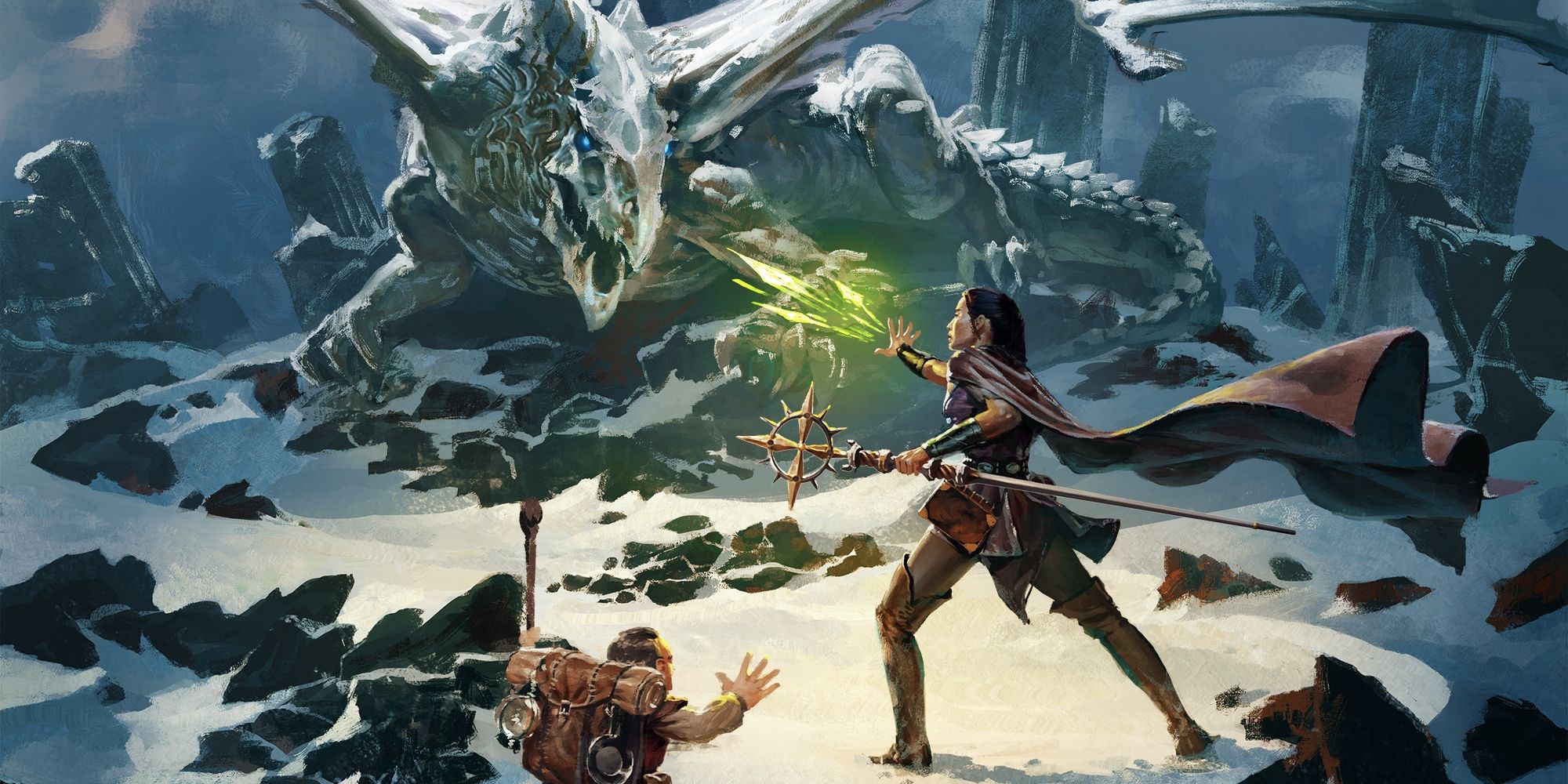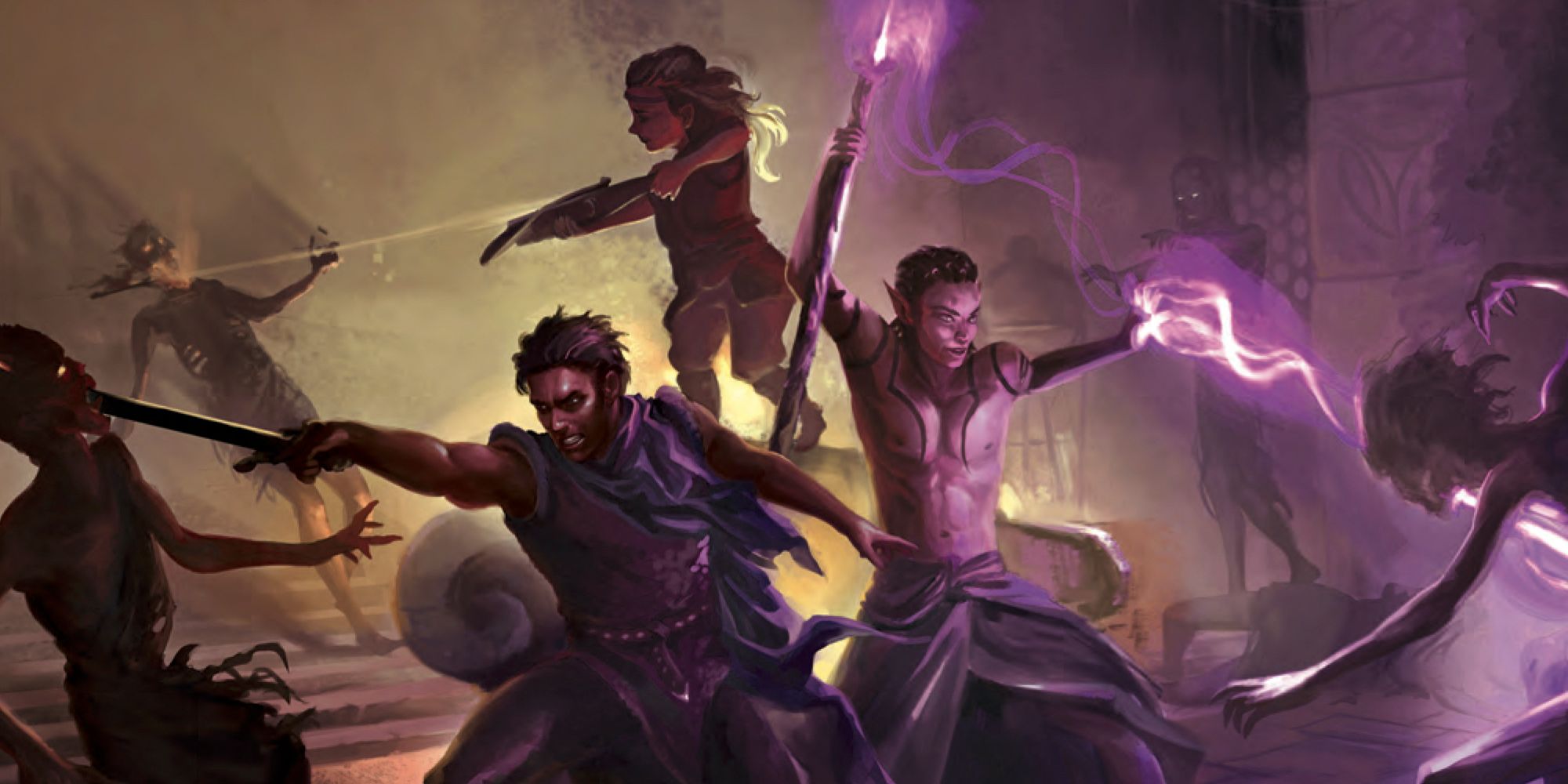In your Dungeons & Dragons campaign, you may find yourself rescuing a guard, feeding a giant eagle or making a pixie laugh at your joke. You might also considering taking them along with you. For these cases, Wizards of the Coast has two rule sets out there for including a minor character as a lasting party member, called a Sidekick. One rule set, in the Essentials Kit, is official and compact. The other, in Unearthed Arcana, is unpublished and broad. Both have their own merits and place in the right Dungeons & Dragons party.
When considering a Sidekick, as either a Dungeon Master or a player, it's worth being somewhat picky. They fit best in a party that's either small, short an important role or both. Role redundancy can be fine in a small party of two or three players since any extra ally can be valuable help, but in a larger party, it becomes more important for the Sidekick to fill a niche to make them worth the extra time and effort to play. This is especially the case for parties with five or more players, as (unless the Sidekick is fairly simple and more like a Ranger's animal companion than a full-fledged party member) they risk bloating combat sequences and giving one player far more time in the spotlight than the others.
This kind of bloat gets worse if the Sidekick ends up being dead weight. The rules in the Essentials Kit fully replace the chosen creature's original attributes, which safeguards against recruiting a Commoner with a ten in every ability score. The Unearthed Arcana document, however, doesn't make a creature's attributes any better or worse for being a Sidekick -- at least not at first. So if a Sidekick of that sort is going to last, a player is better off looking for a friend with great strength or unique abilities. In other words, before getting too attached, it might be best to choose the Warhorse with 19 Hit Points over the Mastiff with five.
To become a Sidekick, a creature has to be "friends" with a player character. This likely means a player has done them a big favor, made one or more successful Persuasion or Animal Handling checks (depending on who's up for recruitment) or both. This makes recruiting certain creature types, like mindless oozes or constructs, dubious at best. But in some circumstances, for the sake of fun or flavor, a DM could choose to allow it. After that, the player and DM choose which Sidekick specialty makes sense: the Warrior, the Expert or the Spellcaster.
The Warrior is like a Fighter with some Barbarian mixed in, meaning they're sturdier, more likely to critically strike and (so long as they're humanoid) can use all weapons and armor. If the party is short on muscle, the Fighter has a shield-sibling or the Ranger needs a hunting partner, this specialty is a good choice. Keep in mind that if a Warrior is Strength-based, they'll often be in melee range. This means a greater risk of death at lower levels, especially without proper gear. If they're Dexterity based, they can probably afford to shoot foes from the back line until they are more resilient.
The Expert is a lot like a Rogue, minus the high-damage sneak attack. This makes them more of a slippery specialist than a striker. Don't expect them to pick up the slack on damage, but they can grant the party a boost in the skills department. In the Essentials Kit, Experts are somewhat restricted to being the sneaky, thieving sort, but in Unearthed Arcana, they could be an expert in anything the player and DM can agree on. They could be a constable with a keen eye, an archivist with obscure knowledge or even a particularly talented basset hound.
In the Essentials Kit, the Spellcaster has two role options: mage or healer. The mage's spells are arcane (damage and utility), the healer's are divine (healing and support) and the spells they each learn are predetermined. This saves on bookkeeping, but also limits customization. The Unearthed Arcana document trades simplicity for detail, allowing spells from any one full-caster's spell list, with an appropriate spellcasting ability for each. If your party's main caster is focused mostly on healing, damage or utility, this specialty can ensure you have all magical bases covered. A Sidekick of this sort could be a pixie prankster, an acolyte of the party's Paladin or a satyr with bewitching pan pipes.
The option to recruit an additional character harkens back to the hirelings of past editions and opens up all sorts of exciting new possibilities. Sidekicks can provide a party with a valuable ally and a tangible, lasting link to a setting -- even transcending the usual restrictions of character creation.



